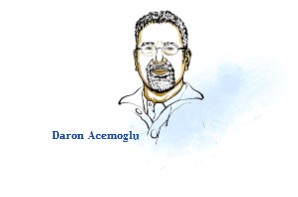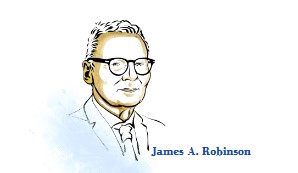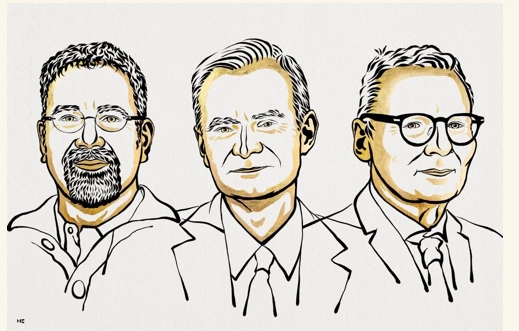The Nobel Memorial Prize in Economics for 2024 comes at a crucial time, focusing attention on the role of societal institutions in shaping wealth and poverty. The laureates—Daron Acemoglu, Simon Johnson, and James A. Robinson—offer a piercing examination of why some nations thrive while others flounder, placing institutions at the heart of the global inequality debate. Their research, stretching from European colonization to modern governance, underscores how historical forces still dictate the economic fates of countries.
At the core of their work is a question that has echoed through centuries: What makes a society prosperous? The answer, they argue, lies not only in resources or geography but in the very institutions that govern. “Societies with a poor rule of law and exploitative institutions are doomed to stagnation,” the Nobel committee noted, highlighting the enduring significance of this research.
The laureates’ work provides a timely lens through which Pakistan’s ongoing economic and political challenges can also be examined. Their groundbreaking research on the role of institutions in shaping the economic fortunes of nations offers a framework to understand why some nations, like New Zealand or Italy, thrive, while others, like Pakistan, continue to struggle.


Creation of Two Different Worlds
In the 1600s, the British Empire colonized two very different regions—New Zealand and West Africa—establishing institutions that would shape their futures. In New Zealand, inclusive political and economic structures allowed even the poorest settlers to own land and participate in commerce, leading to long-term prosperity. In contrast, West Africa experienced the imposition of extractive institutions, where wealth was funnelled to the imperial center, leaving the region economically devastated and plagued by corruption and stagnation—effects that are still felt today.
The Vicious Cycle Pattern
At the heart of this research is the concept of “extractive institutions.” These systems are designed to funnel wealth to a select few at the expense of the majority. The trio’s work reveals a disturbing reality: countries that were wealthy before colonization often ended up with extractive institutions that thwarted sustainable development.

This cycle, as the laureates explain, becomes self-perpetuating. Political elites benefit from these systems and have little incentive to change them. “Why reform when the current setup guarantees power and wealth?” they ask. The result is a system that blocks reforms, perpetuating inequality and hindering long-term economic growth.
The current situation in countries like Zimbabwe offers a striking example. Despite promises of reform, distrust in political leadership runs deep, and economic stagnation persists. Leaders often prioritize short-term gains over inclusive reforms, leaving their populations trapped in poverty and inequality.
In Pakistan, promises of reform are often viewed with skepticism, a sentiment echoed in the laureates’ research. Political leaders frequently pledge to combat corruption, improve governance, and promote economic growth, but the lack of genuine structural change has left these promises unfulfilled. This distrust has deepened the sense of economic stagna-tion, as the majority of the population remains excluded from meaningful participation in the economy and political decision-making.
Breaking the Chains
The laureates emphasize that while the cycle of extractive institutions may seem entrenched, it is not unbreakable. History shows key moments when societies have shifted from exploitation to inclusion, often triggered by crises. The Arab Spring is one such example, where mass movements successfully challenged long-standing regimes. Tunisia, in particular, stands out as a success story, transitioning to a more democratic and inclusive system.
However, the path to democracy is fraught with obstacles. “Elites often cling to power, making only superficial concessions to placate the masses,” the laureates warn. Real change requires more than just promises of reform—it demands deep structural transformations, which are not easy to achieve.
Despite the challenges, Pakistan’s journey is not without hope. There have been efforts to push for democratic institutions, decentralize power through provincial autonomy, and foster a growing civil society movement. These reflect a potential to build more inclusive systems. As the laureates note, democracy and inclusive institutions often arise in response to social pressures, even when the ruling elite resists change.
Pakistan’s vibrant political culture and increasing calls for accountability show that the country still has the potential to escape the cycle of extractive institutions. However, for Pakistan to truly prosper, it must continue working toward strengthening its institutions—making them more inclusive, transparent, and accountable. Only by doing so can the nation move beyond short-term gains for a few and create long-term growth that benefits its entire population.
Breaking the Chains
Today inequality threatens the social fabric of many nations. The laureates’ research provides a blueprint for change, but it also serves as a warning. As long as extractive institutions dominate the political landscape, promises of reform will ring hollow. The path to prosperity requires inclusive systems that prioritize long-term growth for all, not just the elite few.
Addressing institutional failures is not a task for tomorrow. The systems we build today will decide whether we can close the wealth gap and create a more just, equitable world.
The fight, as history tells us, won’t be easy—but the future depends on it.






